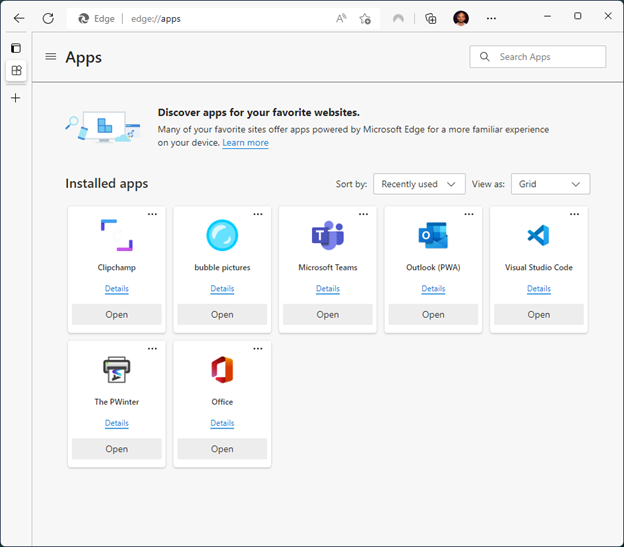Progressive Web Apps have been all the rave in the software world for some time, not least because they offer users the capabilities of full applications in a more lightweight form. Google has been a huge proponent of the solution (especially after realizing that Accelerated Mobile Pages weren't going to work out), adopting PWAs for many of its services while improving the experience on Chrome OS. Microsoft is now following suit, announcing several improvements to web app features and development on the Edge browser at its Build conference.
Microsoft says it hopes to make PWAs behave more like actual apps than websites accessed via Edge. First, it’ll enable new APIs that allow Windows to pass on PWA notifications as though they came from the respective software rather than the Edge browser. It might seem like a small change, but it’s a game-changing feature for PWA users. Even better, the company will make finding PWAs a lot easier by displaying them in the Microsoft Store alongside native apps. Other minor changes include an overhauled Microsoft Edge Apps page, a new Apps Hub experience, and app syncing across devices.
While these experiences are aimed at end-users, Microsoft also has plenty in store for developers. It’s partnering with PWABuilder, a platform that helps developers build PWAs. As a result, programmers will get access to a PWA Starter project and a new VS Code PWA Studio extension to make it easier to create and publish PWAs to the Microsoft Store.
Aside from PWAs, Edge is also getting a few other under-the-hood upgrades. For instance, Microsoft says it’ll increase availability for WebView 2 to WinUI 2/UWP apps over the next few months, allowing programmers to bring Chromium engine-powered experiences to their software. Of course, this has benefits for consumers — Microsoft says the platform can reduce the CPU and memory utilization by over 30% for such apps. Meanwhile, WebView2 is also available with another app building platform .NET MAUI and will be coming to the Xbox later.
Following developer complaints of DevTools (a set of programs that allow a developer to create, test and debug software) being too complex, the company’s simplifying the interface with a focus on customization and learning.
Finally, Microsoft reiterated the eventual decommission of Internet Explorer 11 on June 15 — less than a month away — though there's already a backwards-compatibility mode in Edge for those fans of 90's web development gore.


